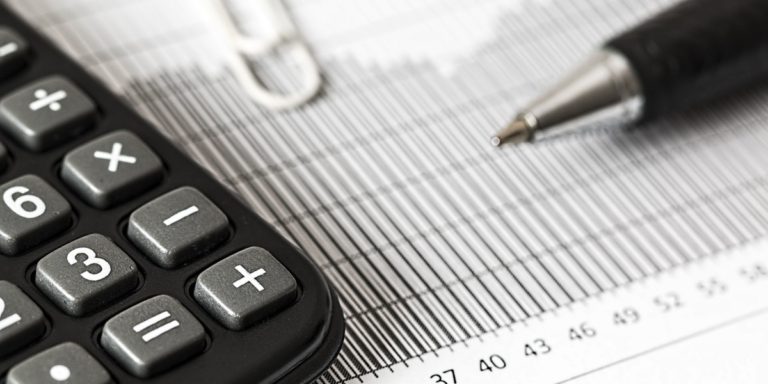Tips of Deductions from Rental Property Income You Can Take at Tax Time
Income or loss derived from the rental of property inside and outside of Canada must be reported on your income tax return on a calendar-year basis. There are two types of expenses, namely, current expenses and capital expenses. You can deduct current expenses from your gross rental income. To earn the rental income you may have incurred following reasonable current expenses that you can deduct from gross rental income:
-
- Advertising: Fees paid for advertising to look for tenants are deductible. Advertisement can be put in any media such as newspapers, online sites, magazines and directories, etc. You can deduct 100% ad cost if it is fully related to the rental property.
-
- Insurance: Premium paid for home insurance is deductible to the extent it is related to current year. For example, you may have bought insurance and paid a premium for three years at a time. You can claim one-third in the current year and one-third each in the next two years.
-
- Interest: Any interest you paid on the funds borrowed to buy your rental property. Remember, you can only claim interest portion, not the entire mortgage installment payments.
-
- Office expenses: You can claim the deduction for expenses such as pen, pencil, stationery, stamps, etc. items.
-
- Legal, accounting and other professional fees: You can claim legal fees incurred for collecting outstanding rents. However, you cannot deduct legal fees paid for buying or selling property from gross rental income. You can also deduct fees paid for bookkeeping, financial statements, preparation of tax and any other information returns.
-
- Management and administration fees: Amount paid to a property management company or a property manager to manage your rental property or to an agent to collect rents from existing tenants or for finding new tenants is deductible. However, commission paid to an agent for selling your rental property cannot be deducted from gross rental income.
-
- Maintenance and repairs: Amount paid for materials and labor employed for repair and maintenance is deductible. If you use your own labour you cannot deduct monetary value from the rental income.
-
- Salaries, wages and benefits (including employer’s contribution): If you employ superintendents, maintenance personnel and any other staff to take care of your rental property you paid them salaries and benefits, you can deduct these expenses including your contribution to Canada Pension Plan (CPP), Quebec Pension Plan (QPP), Employment Insurance (EI) premium and workers’ compensation. You can also deduct insurance premium paid on plans for employees.
-
- Property taxes: Amount assessed by a province or territory and by a Canadian municipality as property taxes relating to your rental property and you paid for it is deductible.
-
- Travel: You may have to travel to your rental property location to collect rents and supervise repair and maintenance works, you can deduct expenses incurred for travel but not including boarding and lodging.
-
- Utilities: If the rental agreement specifies that you have to pay for expenses such as gas, oil, electricity, water, sewerage, and cable, you can deduct these expenses.
-
- Motor vehicle expenses: If you visit rental property for collecting rents and supervising repair and maintenance works, you can deduct expenses incurred for using your own motor vehicle.
-
- Capital cost allowance: You may want to claim capital cost allowance (CCA) on the cost of building and furniture and equipment but not on the land. However, you cannot claim the deduction of CCA to create a rental loss or to increase a rental loss. If you rent a portion of your principal residence you would not claim CCA at all to avoid designation of your principal residence as the rental property so that you can qualify for capital gains exemption permitted on a principal residence.
-
- Any other reasonable and related expenses: You can deduct any other reasonable and related expenses not listed above that you incurred specifically for the reporting rental property.
Rental income or loss is reported on CRA Form T776 (Statement of Real Estate Rental) while filing your income tax return. To learn more about reporting of rental income or loss you can consult CRA Guide T4036 (Rental Income).
Where the rental property is owned by a joint or co-owner, each has to report income and expenses and CCA proportionately. If the property owned by a partnership income or loss is calculated at the partnership level and each partner claims net profit or loss proportionate to their share in the partnership.
Tax treatment of rental loss:
Rental loss can be used to reduce income from other sources. After reducing all other source income if you still have rental loss you can carry them back or forward to reduce taxable income in other years.
Source: CRA
Disclaimer: The content/information provided on these pages are intended to provide general information only, which are up-to-date as of the date of publish, and which may not reflect a reader’s specific situation and the latest position/state of the relevant laws/standards/facts/opinions. As such the readers are advised to take an expert opinion or consult related laws before taking any actions in this respect. In case there is any confusion, readers are advised to consult relevant rules and regulations published by the respective government authorities or consult with an appropriate competent professional. MAQCPA Professional Corporation cannot be held liable for reliance on or usage of the general information provided on this page/blog/article, under any situations whatsoever.







